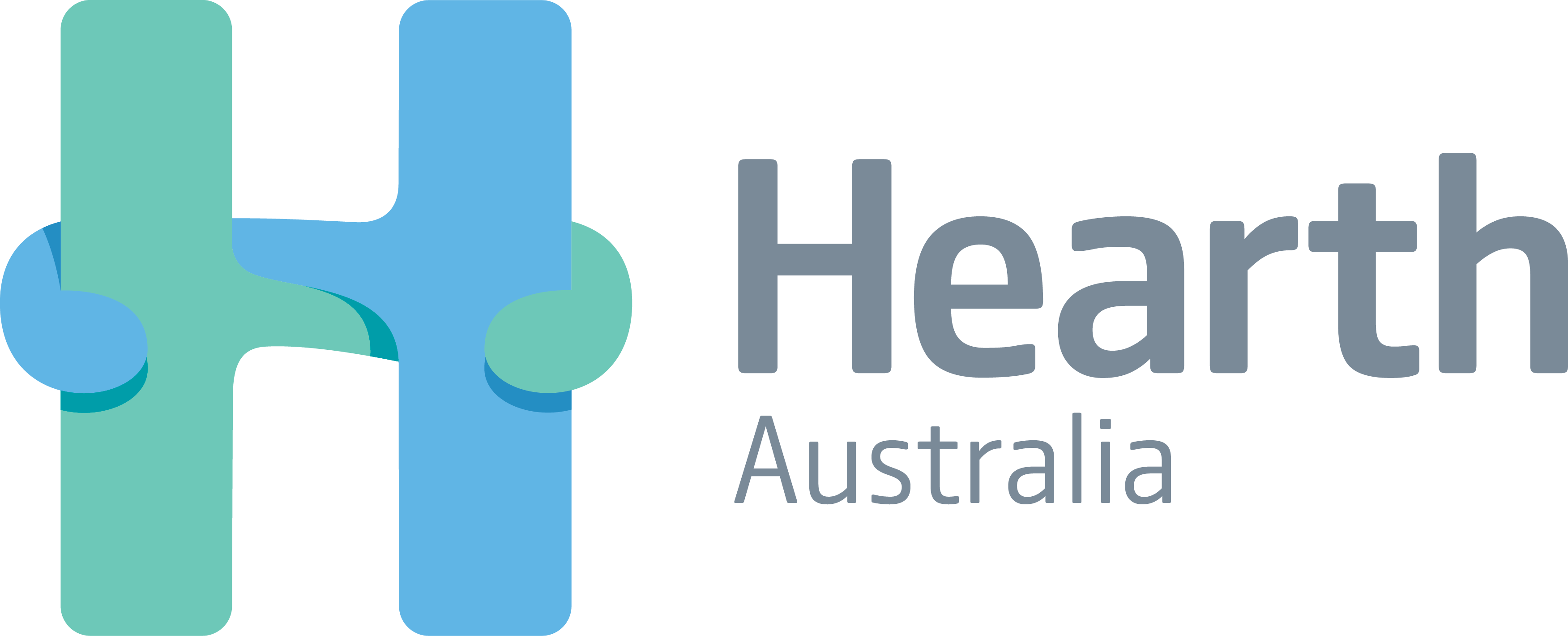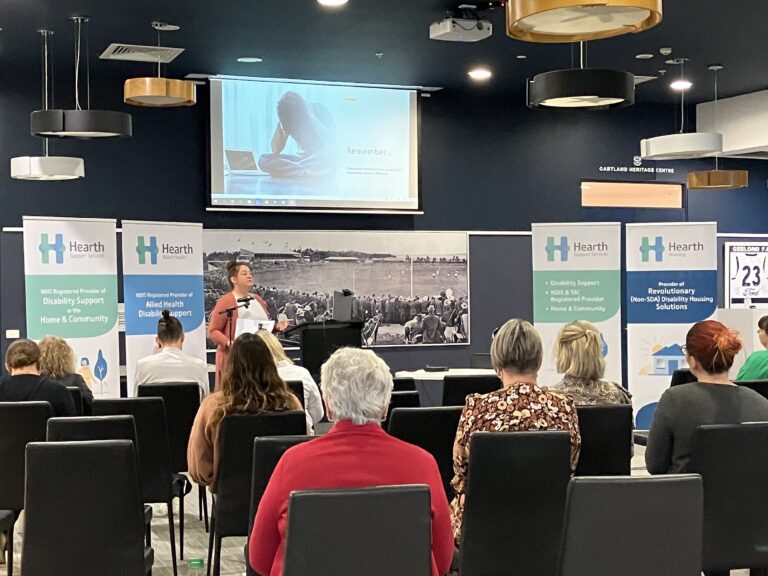Dr Erin Leif Presents a Trauma-Informed Model of Positive Behaviour Support at GMHBA
I was thrilled by the response to today’s “Trauma-Informed Model of Positive Behaviour Support” event at the Deakin Cats Community Centre GMHBA stadium and the opportunity to invest in the Greater Geelong Region.
The response from all attendees and the Zoom participants has been overwhelmingly positive! Zoom participants described the event as “awesome,” “extremely valuable,” and “a treasure trove so many gems”
Hearth Support Services opened a regional office in central Geelong in February this year. Shortly after in March 2022 Hearth hosted its first event Hearths “Disability Housing Solution” which really resonated with the Geelong community.
As a demonstration of Hearth’s ongoing commitment to the Greater Geelong Region Hearth staged todays Positive Behaviour Support event in partnership with Dr Erin Leif.
“Trauma Can Impact the Lives and Learning of Australians”
Dr Leif believes “trauma can impact the lives and learning of Australians in many ways.”
“Although there is limited data on the prevalence of trauma in Australia, some recent research suggests that about 50–75% of Australians will experience a potentially traumatic event at some point in their lives.
International studies estimate that about 60–70% of young people will have been exposed to at least one traumatic event by the age of seventeen.
Trauma exposure is reported to be more common among specific groups such as people who experience homelessness, young people in out-of-home care or under youth justice supervision, refugees, women and children experiencing family and domestic violence, First Nations people, and people with disability.
Many people who receive behaviour support services may have experienced adversity in their lives. Therefore, it is important for behaviour support practitioners to understand what adversity is, how exposure to adverse events can influence behaviour and result in trauma, and how to deliver behaviour support services from a trauma-informed perspective.”
Dr Erin Leif Addressed the Following at Today’s Positive Behaviour Support Event
In this presentation, Dr Erin Leif from Monash University discussed risk factors for trauma, the impact of trauma on learning and development, and ways to deliver evidence-based, trauma-informed services that focus on building skills and resilience.
Learning outcomes were:
- Define adversity, trauma, and post-traumatic stress, and identify risk factors for trauma
- Describe how adverse experiences or traumatic events might influence behaviours of concern
- Describe the principles of trauma-informed practice, and compare and contrast trauma-informed practice with trauma-specific services
- Describe the core components of trauma-informed positive behaviour support
This event is part of a series of professional development opportunities at Hearth, bringing together leaders in the field of Positive Behaviour Support.
At Hearth, we believe that we have a collective responsibility to promote best practice and share our expertise with the broader NDIS community, therefore this Professional Development opportunity was offered free of charge.
Please find the slides from the presentation below
Dr Erin Leif PhD, BCBA (Board Certified Behaviour Analyst)
Dr Erin Leif is a globally recognised behaviour analyst who is a Board-Certified Behaviour Analyst (BCBA) and Senior Lecturer at Monash University. Erin is enthusiastic about the science of human behaviour, learning, language, and cognition (why we do what we do!).
Erin’s primary research interests involve the exploration of strategies for building the capacity of the workforce to better support individuals with additional needs (especially children and young people with behaviours of concern, who are most at risk for exclusion and social isolation).
Dr Erin Leif is particularly interested in knowledge translation research. For Erin, knowledge translation involves collaborating with professionals, educators, parents, and individuals to exchange information about what works, and what we need to do better to solve socially important problems.
If you would like to know more aboutHearth Allied Health (includingPositive Behaviour Support), Hearth Housing and orHearth Support Services, please direct your enquiry to info@hearthaustralia.com.au or call us on 1800 894 013
Fiona McAlinden
Hearth Allied Health, Director


